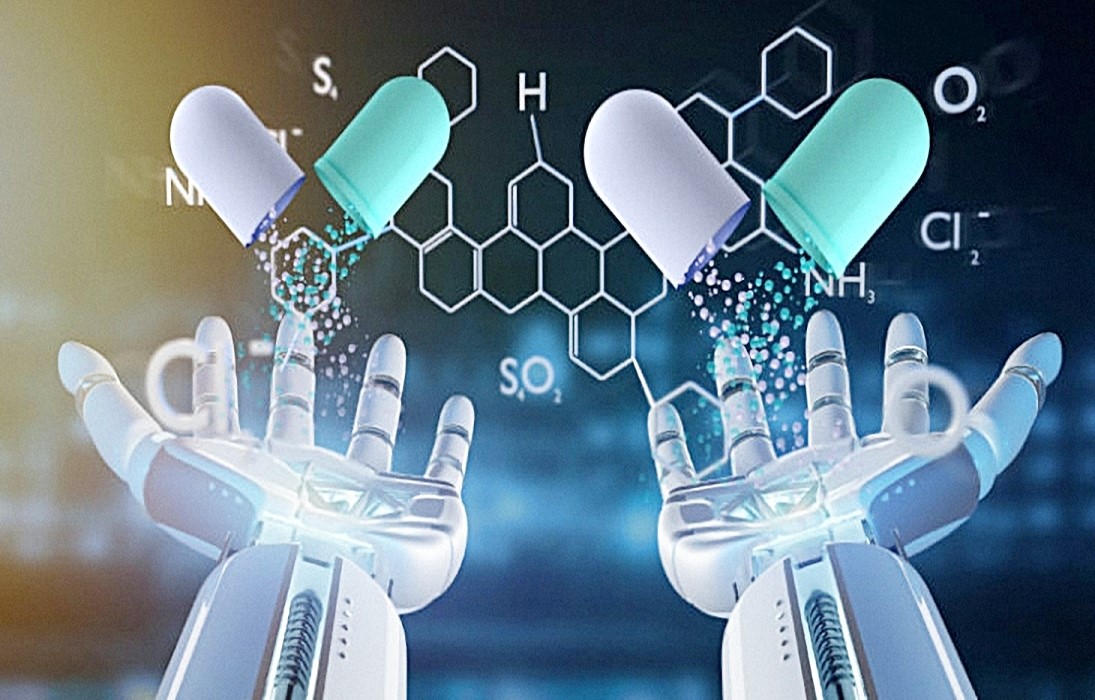The advent of Artificial Intelligence (AI) has ushered in a transformative era across various sectors, and drug discovery is no exception. The integration of AI into drug discovery processes is not only revolutionizing the pharmaceutical industry but also holds the potential to address some of the most pressing healthcare challenges of our time. This article delves into the profound impact of AI on drug discovery, focusing on key aspects such as efficiency, cost reduction, predictive accuracy, and the acceleration of therapeutic development.
Efficiency and Speed in Drug Discovery
Traditionally, drug discovery has been a labor-intensive and time-consuming process, often taking over a decade from initial discovery to market approval. AI, however, is dramatically shortening these timelines. Machine learning algorithms can analyze vast datasets much faster than human researchers, identifying potential drug candidates in a fraction of the time. For instance, AI can process and interpret complex biological data, such as genomics and proteomics, to predict how different molecules will interact with specific targets.
One notable example is the use of deep learning models to predict the binding affinity of drug molecules to their target proteins. These models can screen millions of compounds in silico, prioritizing those with the highest likelihood of success for further testing. This capability not only speeds up the discovery process but also increases the probability of identifying effective drug candidates early in the development pipeline.
Cost Reduction
The financial burden of drug development is staggering, with estimates suggesting that bringing a new drug to market can cost upwards of $2.6 billion. AI has the potential to significantly reduce these costs by streamlining various stages of the drug discovery process. By automating routine tasks and optimizing experimental design, AI reduces the need for extensive laboratory work and human resources.
Moreover, AI-driven predictive models can identify potential failures early in the development process, allowing researchers to pivot or abandon unpromising candidates before significant resources are invested. This early-stage attrition is crucial in minimizing sunk costs and reallocating resources to more promising avenues.
Predictive Accuracy and Personalized Medicine
One of the most promising aspects of AI in drug discovery is its ability to enhance predictive accuracy. Traditional methods often rely on trial and error, which can be inefficient and imprecise. AI algorithms, however, can analyze historical data and learn from past successes and failures to make more accurate predictions about the efficacy and safety of new drug candidates.
In addition to improving general predictive accuracy, AI is paving the way for personalized medicine. By analyzing individual patient data, such as genetic profiles and medical histories, AI can help identify which patients are most likely to benefit from a particular drug. This personalized approach not only improves treatment outcomes but also reduces the risk of adverse effects, as therapies can be tailored to the unique characteristics of each patient.

Accelerating Therapeutic Development
The integration of AI into drug discovery is accelerating the development of new therapies in several ways. Firstly, AI can identify novel drug targets by analyzing complex biological networks and pathways. This capability is particularly valuable in the context of diseases with poorly understood mechanisms, such as neurodegenerative disorders and certain cancers.
Secondly, AI can facilitate drug repurposing, which involves finding new therapeutic uses for existing drugs. By analyzing large-scale clinical and molecular data, AI can uncover previously unrecognized connections between drugs and diseases, potentially leading to faster and more cost-effective development of new treatments.
Finally, AI is playing a crucial role in the design of clinical trials. By predicting patient responses and identifying optimal trial designs, AI can improve the efficiency and success rates of clinical trials. This is particularly important given the high failure rates and substantial costs associated with traditional trial-and-error approaches.
Challenges and Future Directions
Despite the significant advancements brought about by AI in drug discovery, several challenges remain. One of the primary concerns is the quality and reliability of the data used to train AI models. Inaccurate or biased data can lead to erroneous predictions and potentially harmful outcomes. Therefore, ensuring the integrity and representativeness of training datasets is paramount.
Additionally, the interpretability of AI models is a critical issue. While AI can generate highly accurate predictions, understanding the underlying mechanisms driving these predictions is often challenging. This “black box” problem can hinder the acceptance and adoption of AI-driven insights by regulatory bodies and healthcare professionals.
Looking ahead, the future of AI in drug discovery is promising. Advances in data science, computational power, and machine learning algorithms are likely to further enhance the capabilities of AI. Collaborative efforts between academia, industry, and regulatory agencies will be essential in addressing existing challenges and ensuring the safe and effective integration of AI into drug discovery processes.
Conclusion
The impact of AI on drug discovery is profound, offering unprecedented opportunities to enhance efficiency, reduce costs, improve predictive accuracy, and accelerate therapeutic development. As the pharmaceutical industry continues to embrace AI, the potential for groundbreaking advancements in healthcare is immense. By addressing existing challenges and fostering collaboration, AI has the potential to revolutionize drug discovery and bring life-saving therapies to patients faster and more efficiently than ever before.




